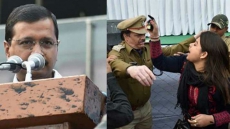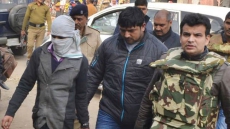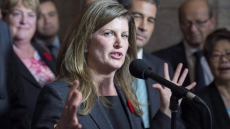TORONTO — Neither governments nor industry professionals can seem to agree on exactly what constitutes journalism in the digital era — all they know is that the issue needs to be discussed.
The thorny subject has confounded academics and practitioners alike in recent years as conventional newspaper models give way to online media outlets.
More recently, governments have had to grapple with the problem when trying to decide who should or should not have access to resources once reserved solely for traditional newsrooms.
The issue came to the fore in Alberta this week after an upstart, right-wing news organization claimed the Alberta government was barring its reporters from activities in the legislature.
A spokeswoman for the province's premier, who once asserted that Rebel Media was not considered a legitimate media outlet, has since reversed course and said no one would be banned from news conferences during the time it takes for the government to review its press policies.
Sean Holman, a journalism professor at Mount Royal University, said questions at the heart of the Alberta government's review have been hot-button issues in the industry for years.
He said frequent cuts to legacy news outlets such as newspapers have left the remaining reporters unable to perform their accountability duties as thoroughly as before, allowing new media organizations the opportunity to pick up the slack.
Holman said journalists have been defined in the past as those with the capacity to reach a mass audience and to convey information without a bias.
In his view, both those criteria are too simplistic for today's media landscape.
"The two tests are ... are they performing an accountability function, and are they doing so with the public interest in mind," he said, adding that public interest can be defined according to an organization's political leanings.
Unbiased coverage is not a prerequisite for access to the heart of Canada's political life.
Manon Cornellier, president of the Canadian Parliamentary Press Gallery in Ottawa, says media accreditation is available to those who can prove that they're providing public coverage and are not simply trying to gain access for lobbying or other purposes.
"They establish that they need the services, and they were doing genuine journalistic work which can be comment, opinion or plain reporting," she said. "It's not just one type of work. It's any journalistic items, on a regular basis, on federal or parliamentary affairs."
The gallery's roughly 330 members, she said, consist of everyone from long-standing newspapers to freelance reporters to relatively new online news outlets such as Vice and BuzzFeed.
Cornellier said the common criterion is a clear need for press gallery access.
While traditional news outlets often have active memberships that speed accreditation for their reporters, newcomers must produce several months worth of consistent parliamentary coverage before they're accorded the same rights.
Freelancers usually gain access to the gallery on temporary day passes which will only be issued at the behest of an assignment editor. Alternatively, they need two backing letters from separate news outlets to gain longer-term access. Cornellier said one active freelancer offered a letter from Rebel as part of the accreditation process.
The Canadian Association of Journalists decried the more restrictive approach recently used in Alberta, issuing a statement saying that "they do not control who gets to hold government to account."
Holman suggested one way to potentially resolve the ongoing debate is to reframe the question.
"Should a member of the public have a right to be at that event? Should a member of the public have a right to question their elected officials?" he said. "That is the source of the authority which we have, the idea that we act as surrogates for the public."


